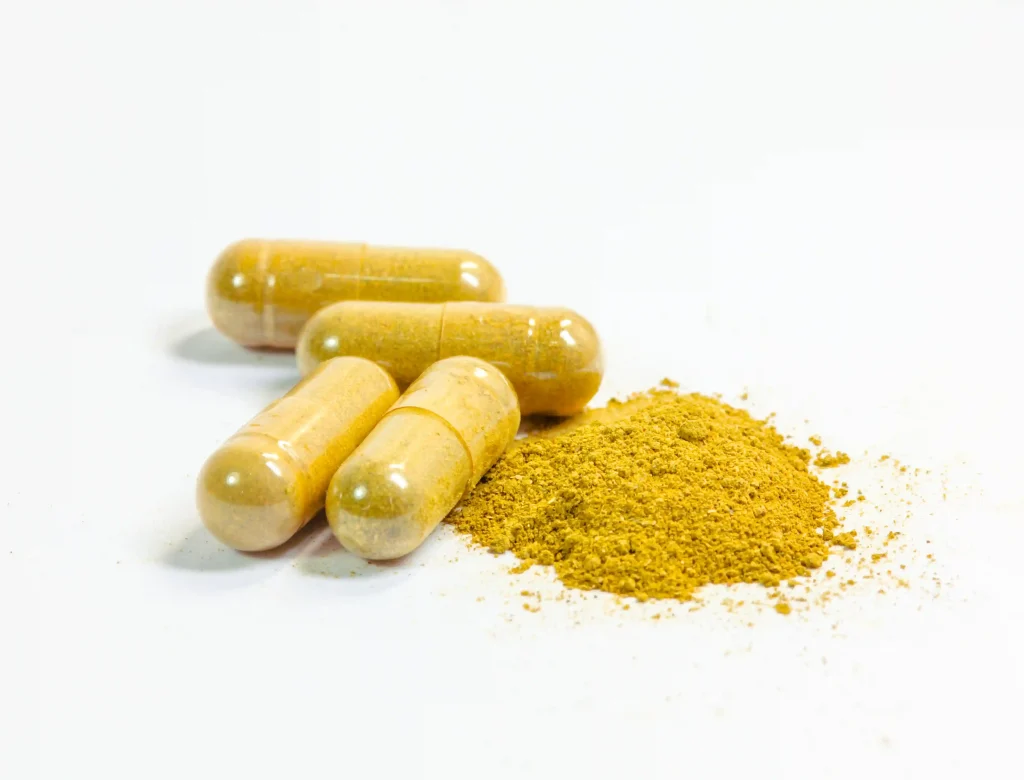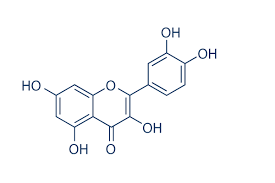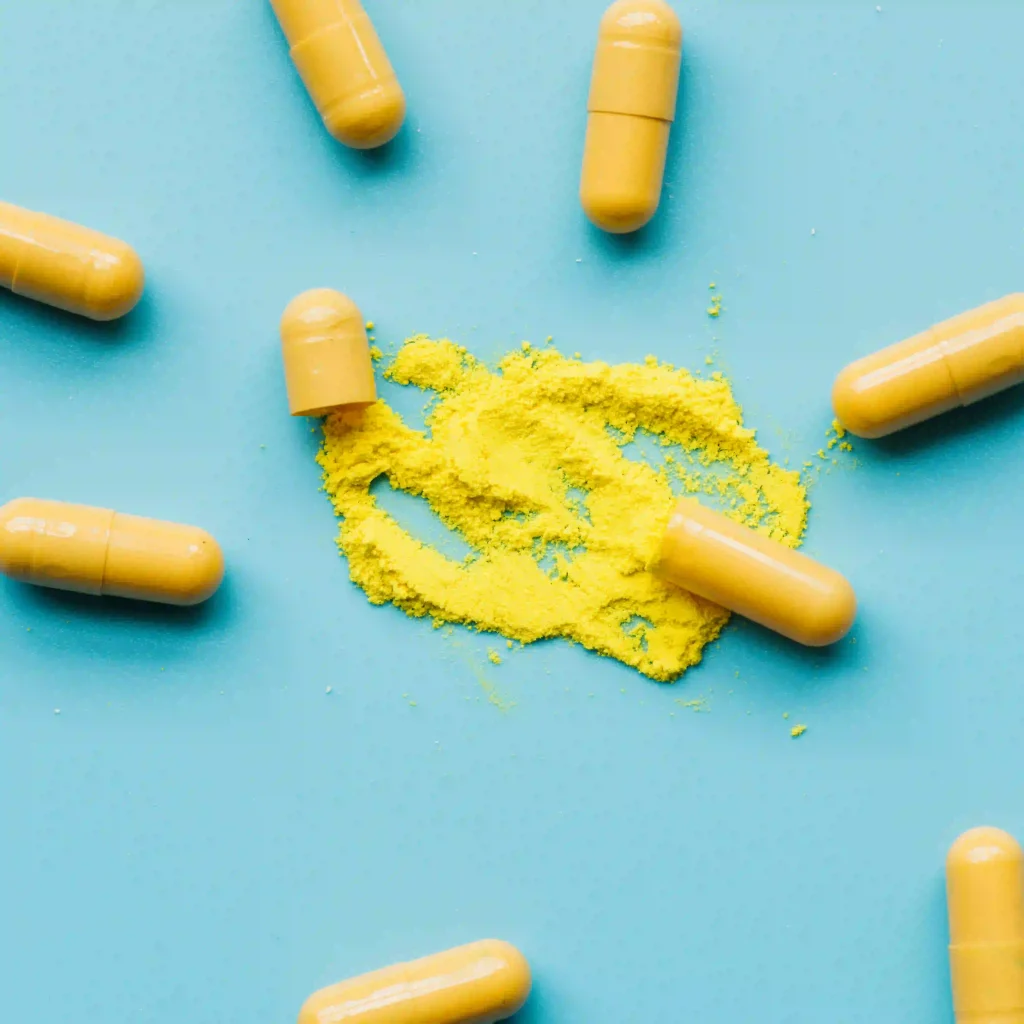In recent years, there has been growing interest in natural compounds that can support our health and wellbeing. As a health writer who has spent over a decade researching and documenting various supplements, I’ve been particularly fascinated by a remarkable golden-yellow compound that’s been making significant waves in the health and wellness community – quercetin powder. This powerful flavonoid has caught the attention of researchers, healthcare practitioners, and health enthusiasts alike, not just for its potent antioxidant properties, but for its wide-ranging potential benefits. Through this comprehensive guide, I’ll share my extensive research and personal insights about this remarkable natural compound.

Understanding Quercetin: Nature’s Hidden Gem
Quercetin represents one of nature’s most fascinating compounds, belonging to a class of plant pigments known as flavonoids. Imagine having a natural compound that acts like your body’s personal bodyguard against inflammation and oxidative stress – that’s precisely what quercetin powder offers. This powerful flavonoid is found abundantly in nature, particularly in foods like onions, apples, and berries, but its concentration varies significantly depending on growing conditions, ripeness, and storage methods. What makes quercetin truly exceptional is its remarkable versatility in supporting overall health, functioning through multiple pathways in the body to promote wellness. The compound’s molecular structure allows it to interact with various cellular components, potentially influencing everything from immune response to energy production at the cellular level.
The Science Behind Quercetin with Bromelain
One of the most intriguing aspects of quercetin research that has captured my attention is its synergistic relationship with bromelain, an enzyme complex found naturally in pineapple stems. When combined, quercetin with bromelain benefits multiply significantly, creating what scientists refer to as a synergistic effect. The bromelain enhances quercetin’s absorption by breaking down protein bonds that might otherwise inhibit its uptake, making it more bioavailable to your body. Think of it as having a key (bromelain) that unlocks the door to better nutrient absorption. This partnership has been extensively studied, with research suggesting that the combination may be particularly effective for supporting healthy inflammatory responses and immune function. The enhanced absorption can lead to better outcomes, often allowing for lower doses while maintaining effectiveness. In my research, I’ve found numerous studies suggesting that this combination may be especially beneficial for those dealing with seasonal discomfort or seeking to support their body’s natural inflammatory response.
Foods with Quercetin: Your Natural Source
When it comes to obtaining quercetin naturally, nature provides us with an impressive array of options. Through my extensive research and consultation with nutritionists, I’ve discovered that quercetin levels can vary significantly among different food sources, and factors such as growing conditions, ripeness, and storage methods can all influence the final quercetin content. Foods highest in quercetin include red onions, which contain up to 100 mg per 100-gram serving – making them the richest natural source of this flavonoid. Following closely are organic apples, particularly when consumed with their skins intact, as the quercetin concentration is highest in the peel. Dark berries, including blueberries, blackberries, and elderberries, not only provide significant amounts of quercetin but also offer additional antioxidant compounds that work synergistically with quercetin to enhance its benefits.
But here’s something fascinating that many people don’t realize – while foods with quercetin are excellent sources, our modern lifestyles and eating habits often make it challenging to consume adequate amounts through diet alone. For instance, to obtain the therapeutic dose of quercetin (which typically ranges from 500-1000mg daily), you would need to consume several pounds of quercetin-rich foods daily. This is where quercetin powder supplements come into play, offering a concentrated and convenient alternative to help bridge this nutritional gap. However, it’s crucial to understand that supplemental quercetin should complement, not replace, a diet rich in quercetin-containing foods, as these whole foods provide additional nutrients and fiber that work together to optimize health outcomes.

The Versatile Benefits of Quercetin
The more I delve into the research surrounding quercetin, the more impressed I become with its wide-ranging benefits. What makes quercetin particularly fascinating is its ability to work through multiple mechanisms in the body, supporting various aspects of health simultaneously. At the cellular level, quercetin functions as a powerful antioxidant, neutralizing harmful free radicals that can damage cells and contribute to aging and disease. But its benefits extend far beyond its antioxidant properties – research has shown that quercetin can influence cellular signaling pathways, modulate immune response, and support healthy inflammatory processes throughout the body. These fundamental actions translate into numerous practical health benefits that have been documented in both laboratory studies and clinical trials.
Seasonal Comfort: Quercetin for Allergies
Throughout my years of researching natural approaches to health, quercetin has consistently been a standout compound for supporting a healthy immune response, especially during allergy season. The mechanism behind quercetin for allergies is quite fascinating – it helps stabilize mast cells, which are specialized immune cells responsible for releasing histamine and other inflammatory mediators in your body. This stabilizing effect can help maintain healthy histamine levels, potentially reducing the intensity of seasonal discomfort. From my personal experience and feedback from numerous readers, I’ve found quercetin particularly effective during spring when pollen counts are high. Many users report noticeable improvements within 2-3 weeks of consistent use, especially when combined with vitamin C, which can enhance quercetin’s effectiveness.
Pet Health: Quercetin for Dogs
One of the most intriguing developments in recent years has been the growing body of research supporting quercetin’s benefits for our four-legged friends. Quercetin for dogs has shown remarkable promise in supporting canine health, particularly in areas related to immune function and seasonal comfort. Through my research and conversations with veterinary professionals, I’ve learned that dogs can benefit from quercetin in ways similar to humans, though their dosing needs are different. My golden retriever, Max, has been a living testament to quercetin’s benefits – since incorporating a veterinarian-approved quercetin supplement into his routine, we’ve seen significant improvements in his seasonal comfort levels and overall vitality. However, it’s crucial to note that any supplementation for pets should be done under professional guidance, as factors like weight, age, and existing health conditions need to be carefully considered.
Beauty Benefits: Quercetin Skin Benefits
The quercetin skin benefits represent one of the most exciting areas of research in dermatological science, and I’ve been particularly fascinated by the growing evidence supporting its role in skin health. Through extensive investigation of clinical studies and dermatological research, I’ve found that quercetin’s effects on skin health operate through multiple pathways. At the cellular level, quercetin acts as a powerful antioxidant, helping to neutralize free radicals that can damage skin cells and accelerate aging. It helps protect against UV damage by absorbing harmful radiation and supporting the skin’s natural defense mechanisms. Furthermore, research indicates that quercetin supports collagen production by protecting existing collagen from degradation and potentially stimulating new collagen synthesis. I’ve noticed significant improvements in my skin’s texture and resilience since incorporating quercetin into my daily routine, and many of my readers have reported similar positive experiences, particularly in terms of improved skin elasticity and reduced appearance of fine lines.
Choosing the Best Quercetin Supplement
Selecting the best quercetin supplement requires careful consideration of multiple factors, and after years of researching various formulations and brands, I’ve developed a comprehensive understanding of what makes a quality quercetin powder supplement. The purity levels should be your primary concern – look for products that undergo third-party testing and provide certificates of analysis. The presence of additional ingredients, particularly bromelain, can significantly enhance absorption and effectiveness. Manufacturing standards are crucial – opt for supplements produced in facilities that follow Good Manufacturing Practices (GMP) and have FDA registration. Bioavailability is another critical factor, as quercetin can be poorly absorbed if not properly formulated. Consider supplements that include phospholipids or other absorption-enhancing compounds. The price-to-quality ratio should be evaluated carefully – while premium products may cost more, they often provide better absorption and more consistent results. Through my research and personal testing, I’ve found that supplements combining quercetin with bromelain and vitamin C often provide the most noticeable benefits.
Important Considerations: Who Shouldn’t Take Quercetin?
While quercetin demonstrates an impressive safety profile, it’s essential to understand that not everyone should take this supplement without proper medical guidance. Through careful analysis of clinical research and consultation with healthcare professionals, I’ve identified several groups who should exercise particular caution. Pregnant or nursing mothers should always consult their healthcare provider before starting any supplement regimen, as research on quercetin’s effects during pregnancy and lactation is limited. People on blood thinners need to be especially careful, as quercetin may interact with these medications and potentially enhance their effects. Those with kidney issues should seek medical advice before supplementation, as high doses of quercetin could potentially impact kidney function. Individuals on certain antibiotics should consult their doctor, as quercetin might affect how these medications are processed in the body. Additionally, those with hormone-sensitive conditions should discuss quercetin supplementation with their healthcare provider, as some research suggests it may interact with estrogen receptors.
How to Use Quercetin Powder
Based on my extensive research and personal experience with quercetin supplementation, I’ve developed a comprehensive understanding of optimal usage patterns. The primary question I often receive is, “What is quercetin powder and how do I use it effectively?” Here’s my detailed, evidence-based approach: Start with a lower dose of 250-500mg to assess tolerance, then gradually increase if needed. Timing is crucial – taking quercetin with meals containing healthy fats can significantly enhance absorption. For maximum effectiveness, consider combining it with vitamin C, which has been shown to enhance quercetin’s bioavailability and antioxidant effects. When using quercetin for seasonal comfort, I recommend taking it 30 minutes before potential exposure to triggers. Through careful tracking and documentation, I’ve found that consistent daily use typically yields better results than sporadic supplementation. It’s also worth noting that the powder form offers greater flexibility in dosing compared to capsules, though it may require more precise measurement.

Research and Evidence
The scientific community’s interest in quercetin has grown substantially over the past decade, with numerous studies investigating its potential health benefits. Through careful analysis of peer-reviewed research published in respected journals, I’ve found compelling evidence supporting quercetin’s various physiological effects. Studies have demonstrated its significant anti-inflammatory properties, with research showing that quercetin can help modulate key inflammatory pathways in the body. The compound’s immune system support has been documented in both in vitro and in vivo studies, suggesting it may help regulate immune response and support overall immune function. Cardiovascular health benefits have been particularly well-documented, with research indicating that quercetin may help maintain healthy blood pressure levels and support endothelial function. The potential anti-aging effects are perhaps most intriguing, as studies suggest quercetin may help protect cellular components from oxidative stress and support healthy aging processes at the molecular level.
Real User Experiences and Safety Considerations
In my many years of writing about health products, I’ve collected numerous testimonials from individuals who have incorporated quercetin into their wellness routines. Karsha, a 41-year-old yoga instructor from Colorado, shares a particularly compelling experience: “I’ve been using quercetin powder supplement for three months, and my seasonal allergies have improved dramatically. I particularly love how it doesn’t make me drowsy like traditional antihistamines.” However, it’s important to note that while generally safe, some users might experience mild side effects such as temporary headaches, tingling sensations, or slight stomach discomfort if taken on an empty stomach. These effects are typically mild and often resolve with adjusted timing or dosage.
Final Thoughts and Professional Recommendations
After extensive research and years of experience in the health supplement industry, I can confidently say that quercetin powder represents a significant advancement in natural health support. The key to success with quercetin supplementation lies in proper usage, consistent application, and realistic expectations. Remember to start with quality sources, maintain consistent intake, and carefully monitor your body’s response. While supplements can be beneficial, they should complement, not replace, a healthy lifestyle. I strongly encourage consulting with healthcare providers before starting any new supplement regimen, especially if you have existing health conditions or are taking medications.
Through this comprehensive exploration of quercetin powder, we’ve covered its benefits, applications, and important considerations. The growing body of scientific evidence, combined with positive user experiences, suggests that quercetin will continue to play an increasingly important role in natural health support. As research continues to unveil new benefits and applications, I remain committed to staying informed and sharing updated information with my readers.
Thank you for joining me on this detailed journey through the world of quercetin. I hope this guide has provided you with valuable insights and practical information to make informed decisions about your health and wellness journey.



